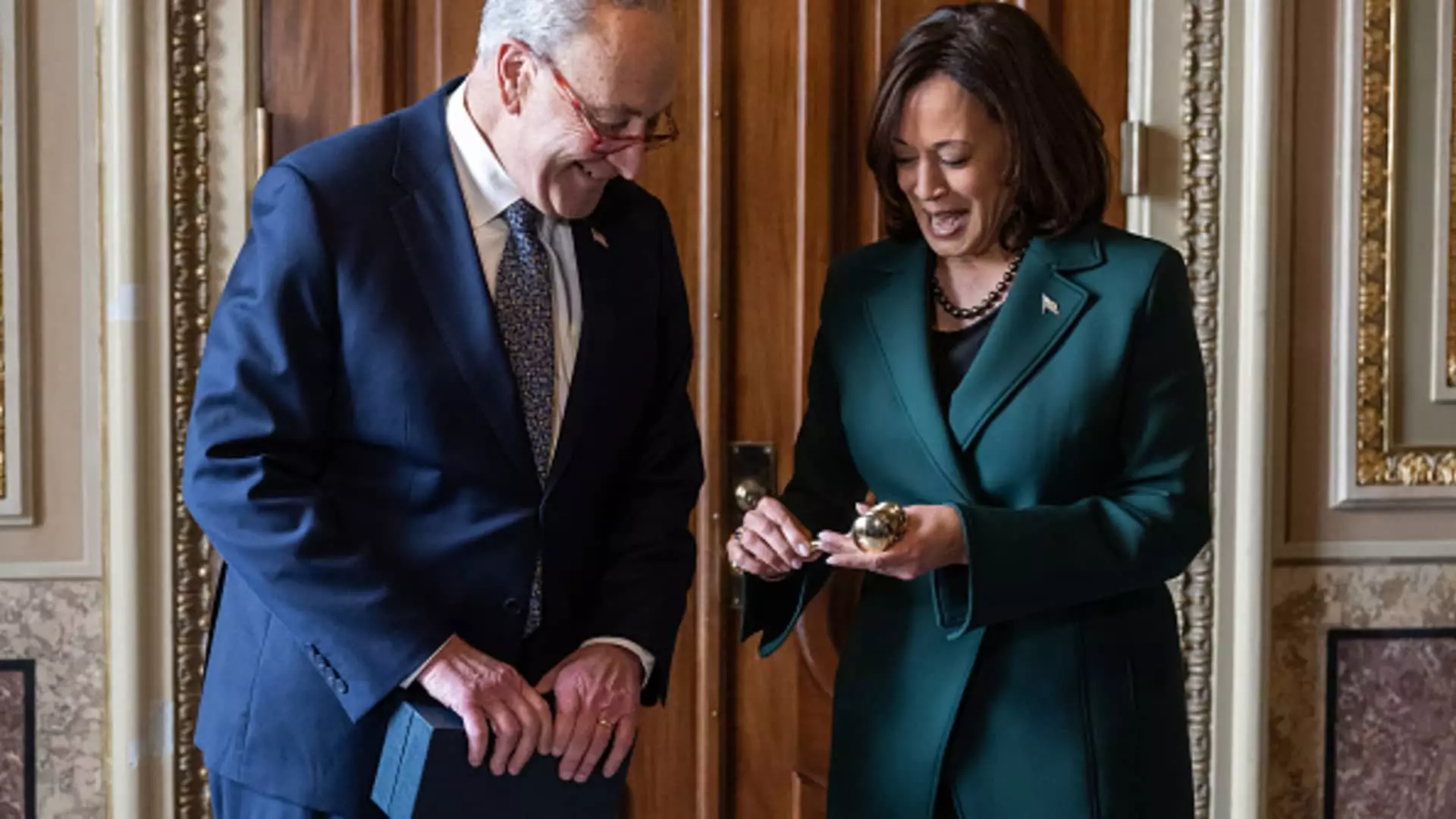In a notable shift in the political landscape surrounding cryptocurrency, Senate Majority Leader Chuck Schumer expressed optimism on Wednesday regarding the potential for a bipartisan bill on crypto regulation to pass before the year concludes. This announcement emerged during a virtual fundraising event dubbed “Crypto4Harris,” aimed at garnering support for Vice President Kamala Harris in her presidential campaign. Schumer’s declaration signals a growing recognition within political circles of the importance of establishing a regulatory framework for the cryptocurrency sector, one that has remained in a regulatory grey area for several years.
Schumer’s assertion that legislative progress regarding crypto regulation is attainable even in a politically divided Senate breathes new life into an industry beset by uncertainty. His comments at the event, which saw participation from prominent figures including billionaire investor Mark Cuban and fellow senators, underline a keen interest in not just stabilizing the industry, but also ensuring that the United States remains at the forefront of innovation. Schumer emphasized a desire for collaboration between Democrats and Republicans, suggesting that the complexity of the crypto landscape necessitates a united approach to regulation.
His inclusive rhetoric about crypto regulation demonstrates a significant evolution in the political narrative about digital currencies. Historically, many lawmakers have adopted a skeptical or outright hostile stance towards cryptocurrencies. By advocating for “sensible legislation,” Schumer might inspire other legislators to reconsider their positions and see the economic potential that crypto could yield for the nation.
During the town hall, Schumer placed particular emphasis on the necessity to bring bipartisan cooperation to the forefront of crypto discussions. Notably, Senator Debbie Stabenow, who chairs the Senate Agriculture Committee, is pushing forward legislation designed to provide a comprehensive approach to crypto regulation. The presence of such influential figures at the fundraising event suggests a strategic alignment that could position Schumer and his allies favorably in the ongoing legislative saga.
While the current administration’s approach to digital assets remains somewhat ambiguous, the growing support from key political players underscores the stakes involved. With over 70 House Democrats supporting the Financial Innovation and Technology for the 21st Century Act, which successfully passed through the House, the momentum appears to be building in favor of crypto legislation. Schumer’s decision to remain noncommittal about which bill he might endorse indicates a strategic consideration of various proposals’ merits and potential outcomes as the discussions unfold.
The increasing engagement of the political sphere with cryptocurrency extends beyond simple regulatory measures. The upcoming elections in 2024 have seen a noticeable emphasis on courting crypto-supporting constituents, a move that reflects the growing significance of the crypto electorate in key Senate races and the presidential campaign. Republican presidential nominee Donald Trump’s newfound openness towards cryptocurrencies illustrates this trend, as he seeks to broaden his appeal amid a changing political landscape. His participation in substantial crypto events further indicates a recalibration of Republican strategies surrounding digital finances.
Meanwhile, Democrats are also strategizing to ensure they are in tune with this emerging voting bloc. Representatives Ro Khanna and Wiley Nickel highlighted ongoing discussions with the Harris campaign surrounding crypto issues, suggesting a proactive approach to ensuring the administration aligns with these burgeoning interests if Harris secures the presidency. The combined financial might of pro-crypto groups, alongside vocal support, suggests that the sector will not be easily overlooked.
Most tellingly, Schumer’s remarks resonate with a broader realization that cryptocurrencies are not a passing fad but rather an integral part of the modern financial fabric. As Sheila Warren, CEO of the Crypto Council for Innovation, stressed during the event, the way forward must involve crafting a regulatory framework that allows for both innovation and security. Legislative decisions made now will likely set the stage for how cryptocurrency integrates with traditional financial systems in the years to come.
As the dialogue surrounding cryptocurrency regulation continues to evolve, the potential for bipartisanship presents an unprecedented opportunity for lawmakers. With influential players from both sides actively engaged, the hope for comprehensive and thoughtful regulation becomes more tangible. The significance of this legislative effort cannot be overstated; it will likely define how the United States navigates the complexities and potentials of the cryptocurrency landscape, securing its status as a leader in financial innovation on the global stage.


Leave a Reply